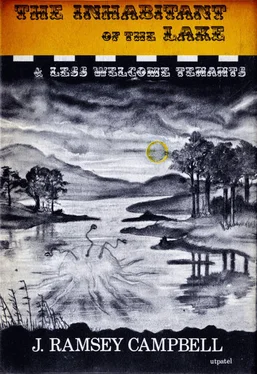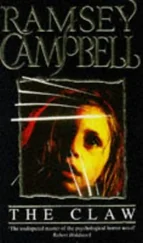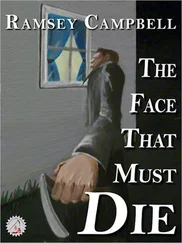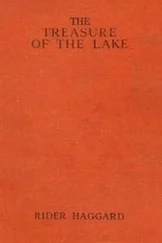'Oh, of course, I forgot,' admitted Lionel Phipps satirically. 'Well, just don't interfere in my business here — I won't stand for it.'
The expected trip to London and the British Museum came in early 1899, and Lionel Phipps found little difficulty in gaining access to that section of the library which contains the rarer books. The librarian did not like the pallid face and leanness of the visitor, but he unlocked the bookcases containing the restricted volumes readily enough. The seeker speedily realised that the monstrous work of Abdul Alhazred would be useless to him in his quest; while it did contain an astrological table, this was very incomplete and long outdated. The even older tome, the Book of Eibon, appeared to him a possible source, with its records of the knowledge of an elder civilization. The librarian discovered that Phipps was attempting to find the position of some sphere Glyu'uho in an obscure relationship with a system of orbits on a certain autumn night — Glyu'uho, translated from that terrible primal tongue, being Betelgeuse. That little-known table in the complete Book of Eibon which gives positions of suggestive far worlds was quickly found by Phipps, from which he copied down parts of the table. The keeper of the books shuddered as he peered over the visitor's shoulder and translated the names of Aldebaran and the Hyades in Phipps' notations. He disliked, too, the walk of the seeker as he left the echoing room, for it appeared that he had some slight difficulty in using his limbs. The librarian might have shivered more had he known of the forthcoming results of this visit.
The return of Phipps, late in the evening, to the house on Riverside Alley, brought the most serious, and last, quarrel between the two remaining inhabitants of the building. Towards its end both were screaming at each other, and the listening Mrs Allen found their remarks terrifying.
Phipps was yelling something which first brought Mrs Allen to listen closely. 'All right, you try and stop me,' he told his mother, 'and I'll forget to operate next time you need it. You have to keep in my good books, or else you won't last out. You wouldn't even be here on this earth if it wasn't for that meeting in Temphill. You'll tell them about my plans, will you? If the people in this town knew what they found in Temphill in 1805 just after the day they met, you might be disposed of quickly…'
She shrieked back: "The people in this town won't be able to do anything if you go on with your father's work — there'll be other tenants in Clotton. Wasn't the tunnel from the gate to the cellar enough?'
'You know I wouldn't be able to protect myself if I let them though the cellar entrance.' Phipps sounded defensive.
'So just because you're a coward, do you have to let them through the other way?' she inquired. 'Once the sign's removed there'll be no way to keep them in check — they'll just multiply until they let the Old Ones back on the earth. Is that what you want?'
'Why not?' suggested her son. 'We both worship the Old Ones; the river-creatures won't harm me. We'll exist side by side as Their priests, until They return to rule the world.'
'Side by side — you're naïve,' Phipps' mother scoffed. Still, perhaps the juxtaposition of Fomalhaut and the Hyades won't be enough; even you may get tired when you have to wait more than thirty years… I'm not staying to see what happens. I'll go back to Temphill and chance what should have come years ago — perhaps it'll be the best thing.'
At about eleven o'clock that night the front door opened, and the strange woman began to walk down the street. A vaguely terrible picture was presented to the warily watching Mary Allen, as James Phipps' widow made her way with that half-paralytic gait which seemed to be a characteristic of all the Phipps family, between the dark houses under a lich-pale moon. Nothing more was ever heard of her, though a woman was seen walking very slowly, and with some difficulty, along a road some miles away in the direction of Temphill. Daylight showed a strange horror; for a little way further on a woman's skeleton was found, as though it had fallen at the side of the road. Body-snatching seemed the most plausible explanation, and the matter was discussed little. Others to whose ears it came, however, linked it-indefinitely with references to something that 'should have come a century ago.'
After this breach Lionel Phipps began to make an increasing number of journeys to that immemorially-constructed river bridge, and was noticed to go underneath to peer into the water frequently. At night he would step into the street at various hours and examine the sky with an excessive degree of impatience. At such times he appeared to be interested in a portion of the sky where, from directions given, Fomalhaut would have risen. Towards the end of March 1899, his impatience began to ease, and a light would be seen more often in the library. He seemed to be preparing for something extremely important, and those who heard the sounds which emanated from the shuttered laboratory disliked to consider just what he might be awaiting.
Early that Autumn came the night concerning which the Brichester people begin to grow reticent. Fomalhaut now glared like the eye of some spatial lurker above the horizon, and many tales began to be whispered abroad about the increasingly frequent happenings around Gloucestershire and the Severn. The hill rumblings were louder and more coherent, and more than once people forced to take forest routes had sensed vast and invisible presences rushing past them. Monstrous shapes had been glimpsed scuttling through the trees or flapping above the stone circles on the hills, and once a woman had come fleeing into Brichester, shrieking a tale of something which had looked very like a tree but had suddenly changed shape. On a night at the peak of these bizarre occurrences, Phipps made his first experiment.
He was seen leaving the house on an evening of late October, 1899, and seemed to be carrying a long metal bar of some sort. He arrived on the river-bank near the bridge at about midnight, and immediately began to chant in ritual tones. A few minutes later the hill noises redoubled in intensity, and a peculiar sound started up close at hand, near the bridge — a monstrous bass croaking which resounded across the countryside. What appeared to be a minor earthquake followed closely on the beginning of the croaking, shaking the river-bank and causing slight turbulence in the water, though nothing more. Phipps then disappeared under the bridge, and through his continued chanting rang the sound of metal scraping on stone. Upon this sound came a subterranean commotion, with a rising chorus of voiceless croaking and a sound as if of Cyclopean bodies slithering against one another in some charnel pit, with a nauseating rise of that alien reptilian odour. But nothing came into view, even though the scrape of metal against stone continued with greater ferocity. Finally Phipps appeared above the bridge's shadow again, with an expression of resignation on his face. He made his way back to the house in the alley, as that abominable commotion died out behind him, and entered, closing the door stealthily. Almost at once the light filtered out from the shuttered laboratory where, presumably, he was again studying the inherited documents.
Seemingly, Phipps was becoming unsure whether he was using the right chant, for that was what he told the British Museum librarian, Philip Chesterton, this now being the year of 1900. Phipps preferred not to say which incantation he needed, or what he hoped to invoke by its use. He made use of the Necronomicon this time in his search, and Chesterton noted that the seeker appeared interested in those pages which dealt with the commission of beings in tampering with the elements. The reader copied down a passage and continued to another section of the volume. Chesterton, reading over the other's shoulder, noticed that he showed considerable interest in the following passage, and shuddered to think of possible reasons.
Читать дальше












